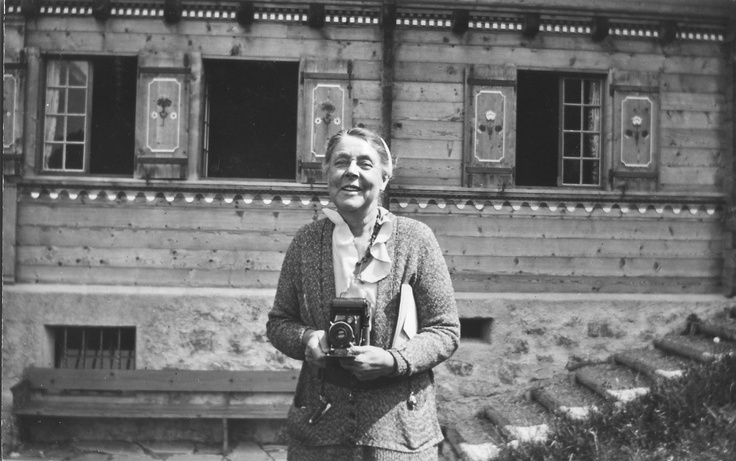Philanthropist and preservationist, Helen “Nell” Osborne Storrow (1864-1944), founded the civic organizations Women’s City Club of Boston and the Country Dance Society, which introduced English folk dance to the United States. To improve the lives of immigrants in Boston’s North End, she sponsored the Saturday Evening Girls reading club and the woman-run Paul Revere Pottery.
Born into a prosperous New York family—Storrow’s father was founder of a firm that became International Harvester— her mother was a socially-conscious Quaker and niece of the abolitionist Lucretia Mott, one of the organizers of the Seneca Falls Convention of 1848. Storrow’s marriage to Boston Brahmin James Jackson Storrow, a lawyer and banker, brought her to Boston where they both dedicated themselves to civic causes, including the creation of the Esplanade and Storrow Drive Embankment, which bears their name.
The Storrows summered in Lincoln, Massachusetts. In 1938, intrigued by the work of Bauhaus architect Walter Gropius, she provided a piece of land on her property and financial support to build what is considered a masterpiece of modern architecture—Gropius House. Fellow architects and designers soon followed, including Marcel Breuer.
Deeply involved in scouting, Storrow also used the Lincoln property to hold Girl Scout training courses. A prominent leader at the local, state, national and international levels of Girl Scouting, she is one of only three American women granted the Silver Fish Award by Lady Baden-Powell. The Helen Storrow Heritage Award is presented yearly by the Girl Scouts of Eastern Massachusetts Council to individuals that have made a significant contribution to scouting.

